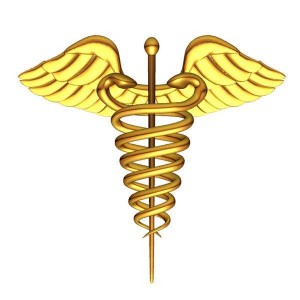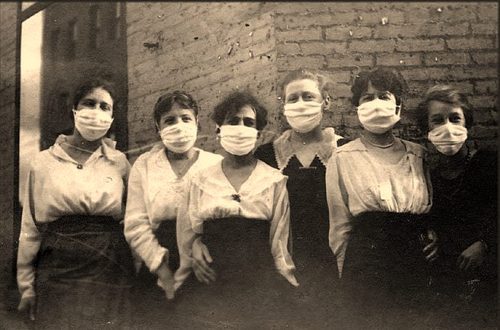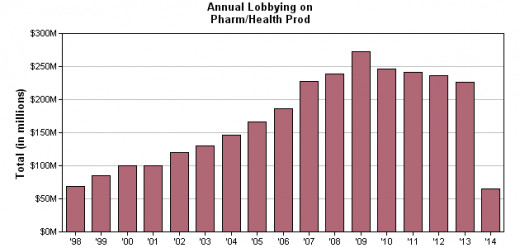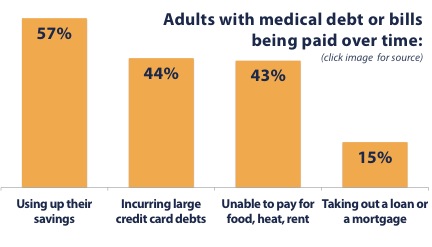Sick With Health Insurance

Simple Yet Complex
The World Health Organization defines health as “a state of complete physical, mental and social well-being and not merely the absence of disease or infirmity.”
The idea of having good health consists of very simple acts: Eat well, live well, be well. Today's modern society has warped the common perception of what it means to be healthy.
Costly prescription drugs, complicated procedures, repetitive visits to numerous medical facilities and risky treatments have become synonymous with going to the doctor.

Historical Health
Our current healthcare system is supported by financial institutions known as insurance companies. The origin of health insurance is a curious one. It has been called a progression of cooperative assistance; a slow growth of strategic employee risk management on behalf of employers, as well as a line of historical accidents.
In the 19th century, hospitals were locations where people with terminable illnesses and diseases would visit in order to quietly expire. Treatment for bacterial and viral infections were occurring in hospitals in Europe, but doctor visits to the home were still commonplace in the United States. Hospital visits in North America were equivalent with death.

As the Turn of the Century commenced, and the Industrial Revolution in full-swing, the medical field began to advance. Scientific experimentation, comprehension and implementation were progressing in various sectors like chemistry, physics, ecology and biology, and the results had influential impacts.
Doctors were able to treat patients and attain positive results, reforming the view of hospitals as a place where people turned to become well again. Although already taking place in Europe, births began occurring in medical facilities as well, versus at home with midwives in the U.S.
Medicinal Modifications
Pandemics were rampant in the 19th century. The treatment of infectious diseases with antibiotics allowed for the prevention of illnesses. Anesthetics and antiseptics during medical procedures increased the quality of the patient's recovery. Additionally, people maintained higher nutritional diets which further reinforced the stability of the community's health.
The advancement in the medical field sought to reduce the impacts these diseases had on communities while the government sought to prevent them. Public health became a major focus for the state and federal government. Campaigns were drawn up and messages were delivered via postings to educate communities on health care, while public servants surveyed living conditions.

In New York City, for example, sewage and water treatment strategies were implemented, a trash removal system was adopted and clean water access was developed. This greatly reduced the death and disease that had previously overtaken the expansive ghetto neighborhoods of Manhattan Island. These strategies were used in other urban areas as well, which previously had a “mortality penalty” associated with living in these disease-infested locations.
The Birth of Insurance
Healthcare insurance was born just before the Great Depression in the 1920s. At this point, health was maintained with few, if any, doctor visits per year. But as treatments for diseases became more efficient, the demand for high quality care rose, and people began going to the hospital. The cost of treatments also grew, since skilled professionals and proper materials were also needed to meet this demand.
As the 20s roared on, an administrator from Baylor University in Texas came to a conclusion to help ease the financial burden on hospitals, in addition to aiding the health of the community. He offered the teachers at the school a health care plan.
Over 1,000 teachers received 21 days of in-hospital care in exchange for $6 a year. On average, the cost to provide healthcare for oneself was about $5 a year. This plan later became known as the Blue Cross. The guarantee that an individual had a plan ready in case of illness or accident, as well as the idea of an employer aiding a worker get well so they could return to work faster, was a new concept, but not one that remained in Texas.
A similar plan was established in 1934 in the western United States. Workers in the lumber and mining camps obtained care from a group of doctors that later named their organization the Blue Shield. It took some years for this health care conception to become nationwide, as there was no guarantee that commercial companies would profit from it. Revenue loss was a major concern for many of these businesses during the Great Depression.
War! What Is It Good For?
As the decade ended and World War II began, the federal government began changing the laws around wages and prices to meet the demands of the rising overseas conflicts. Many capable employees were sent to war, while the need for materials was still high. Companies had to develop strategies to attract new workers without being able to raise wages.
Health insurance, also known as a fringe benefit, was officially declared separate from wages by the War Labor Board, and so were not managed by the strict wage controls of the federal government. These businesses soon adopted health benefits to bring in competent workers to sustainably increase their own revenue as the demands of the war rose.
Having health benefits through an employer became synonymous with having a proper job. Other companies not caught up in the war supply demands, soon followed suit, and health insurance blossomed from the 1950s and on.

The New Law of the Land
In the 21st century, healthcare insurance became a federal law. Most health benefit packages are still provided by employers, but there are private insurance companies as well as the federal and state governments that offer a multitude of plans.
In a normal free market, citizens would have options in the selection process of plans that best suit their needs. However, healthcare doesn't operate in a free market, as the government would have people believe.
In truth, citizens have very little deciding power when it comes to healthcare. This is due to the fact there are entities from the corporate sector that sway the representatives in Congress to vote certain ways.
Donate and Deceive
“The pharmaceutical and health products industry -- it includes not only drug manufacturers but also dealers of medical products and nutritional and dietary supplements -- is consistently one of the top industries for federal campaign contributions.”
The statement above is from the organization known as OpenSecrets.org, a nonpartisan, nonprofit research group that focuses on keeping the leaders in Congress honest by illuminating where money in the political realm is really going.
Donations to campaigns are easily the most effective way for corporations in the healthcare industry to control their profits without the public being aware. To put it simply, these companies provide financial support to political leaders that will vote on bills and laws that favor their business portfolios.

In a free market, quality and competition determine the cost of a product or service. Ideally, it would be the same in the healthcare market. Two hospitals that provide the same surgery can attain the business of a patient by performing the operation with a more skilled doctor, or by charging less. This would give the consumer the deciding power. But it is sadly just not the case in America.
Medical procedures are costly, prescription drugs are expensive, and hospital stays can run into the thousands. And citizens have very little say in the matter. Insured people turn to their healthcare providers to cover the extreme expenses. However, that isn't a guarantee, either. In fact, most people with health insurance are unable to cover the cost of their procedures.
Forgiveness is Divine, But Debt is For Life
Medical debt is on the rise. Individuals can't afford to pay their bills, whether in increments or at all. People that can't afford their monthly premiums are also falling into debt. This, in turn, can cause individuals to slip behind in other expenses like car notes, mortgages and credit cards. Medical debt has brought people to bankruptcy.

Being healthy in America is nigh impossible under the current system. Corporations in the healthcare industry control the cost of health maintenance. Politicians who have the power to make change are constantly and consistently being bought out. The lobbyists represent businesses with pockets deep enough to keep leaders from properly dealing with these issues that affect nearly every American.
Doctor's Orders
Its up to each individual to choose how our healthcare system works. People have the deciding power when it comes to lifestyle choices. Live well, be well. Good health is determined more by daily choices than by healthcare providers and prescription drugs.

Vote for change by researching local representatives. Contact them and demand that they stand up for what's right. Health insurance is supposed to help, not destroy a person's way of living. Research the prescriptions, procedures, the doctors and hospitals. If the majority demand change, the system will have to respond.
Corporations put profits before people. Its unethical, unnatural and unjust. A pandemic of greed is running rampant in Washington. The voice of the American citizen is the vaccine. Speak, and we shall be healed of it.
To get more information, visit www.healthcare-now.org.
Curious Scout

Sources
Does Health Insurance Actually Make People Healthier?(DeBenedet) July 2012. http://ideas.time.com/2012/07/02/does-health-insurance-actually-make-people-healthier/
The Role of Public Health Improvements in Health Advances: The 20th Century United States(Cutler, Miller) February 2004. http://scholar.harvard.edu/cutler/files/cutler_miller_cities.pdf





